Conquering the Fear of Flying
If the fear of flying keeps you grounded, Capt. Tom can help you get your wings back.
Having a fear of flying is very common.
Also called aviophobia, a fear of flying can make traveling extremely nerve-wracking and unenjoyable.
Luckily, there are ways of coping and easing anxiety for a peaceful flight.
5 GREAT TIPS FOR PLANNING YOUR NEXT TRAVEL GETAWAY
Below are fear-reducing strategies for your next flight that will keep you occupied and give you a plan for coping.
- Meet the pilot before takeoff
- Put trust in your travel buddy
- Bring things to distract yourself while in flight
- Focus on different objects
- Learn about the aircraft
- Spend the flight asleep
- Be strategic with seat choice
- Strike up a conversation
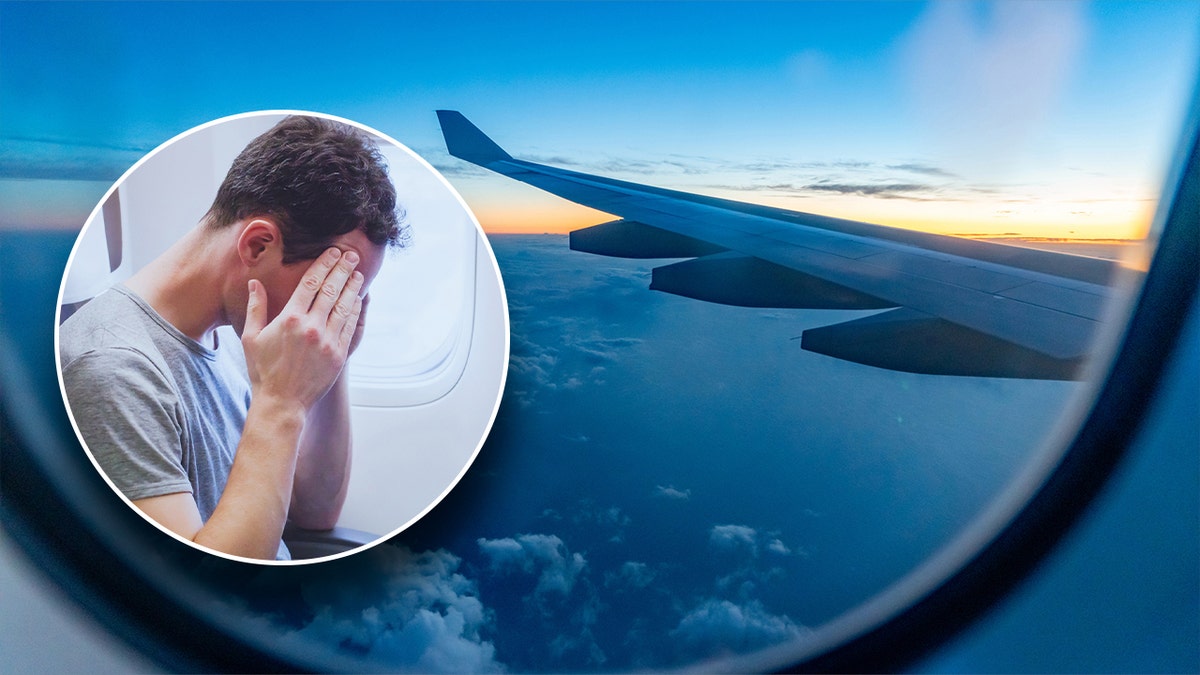
Many people have a fear of flying. Watch your symptoms dwindle by following these tips for air travel. (iStock)
1. Meet the pilot before takeoff
Captain Tom Bunn, a retired pilot and licensed therapist, established SOAR, a program aimed at helping everyone fly successfully, in 1982. He's since assisted thousands of people as they conquer their fear.
Bunn said there is a series of steps he works on with his clients. He encourages them to first try to meet the pilot when boarding.
TEXAS FLIGHT ATTENDANT REVEALS BEST TRAVEL TIPS FOR STRESS-FREE SUMMER FLIGHTS
"Giving up control is a major issue, and if you can meet the person that has the control, it’s kind of like you then have a kinship with the person who does have the control," Bunn said. "You find out they’re real — not just a voice."
2. Put trust in your travel buddy
If you are traveling with someone else, lean on that person for extra support.
Before your trip, let the person know about your fears and whether there are things that you know help you. Share these things with your travel party, so they'll know what to do if you get anxious.
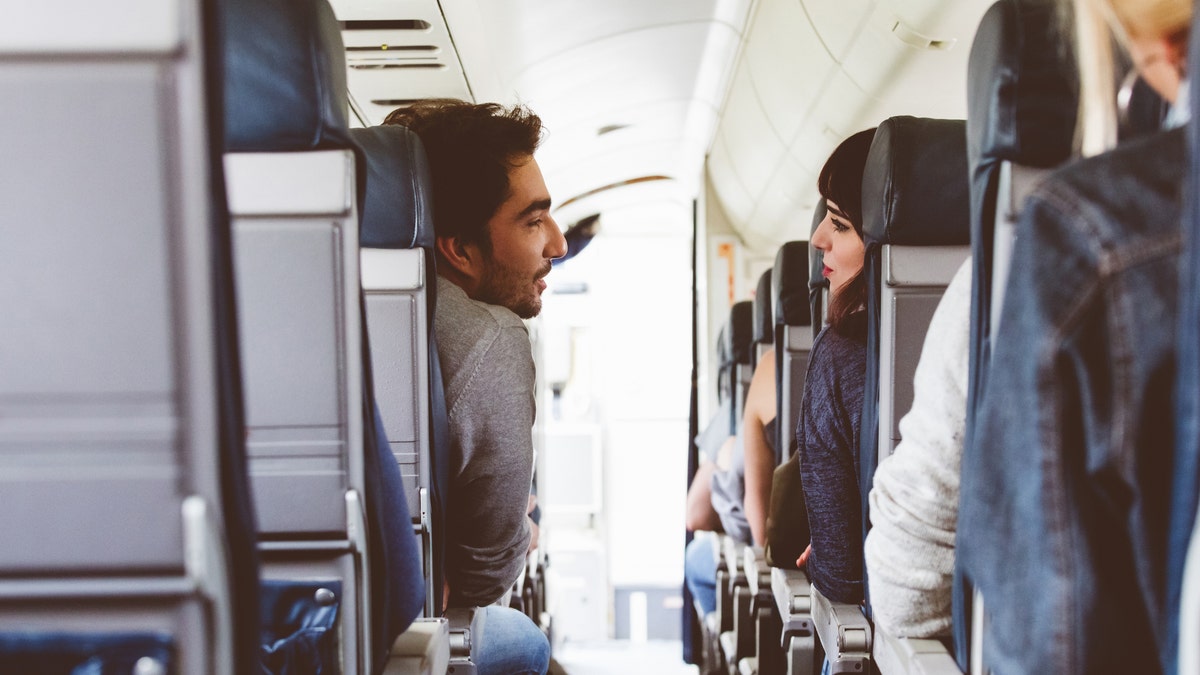
Lean on the people you are traveling with if you have a fear of flying. Make your fears known so they can help you in any way they can. (iStock)
Just having someone else there that you are comfortable with can provide a calming presence for you.
3. Bring things to distract yourself during the flight
Being distracted can help you forget that you are even on a plane. Bring things with you on the plane that you know you will enjoy and can spend a lot of time using.
For example, if there are movies or TV shows you have wanted to watch, download them to your phone or other electronic device before you board, so that they will be ready to go when you’re on the plane.
TRAVEL SEASON IS HERE: 7 TIPS AND TRICKS FROM A TECH AND TRAVELING PRO
This can kill a lot of time during the flight. Just make sure to pack your headphones, too!
Books are another great thing to bring on flights, as well as crosswords and coloring books.
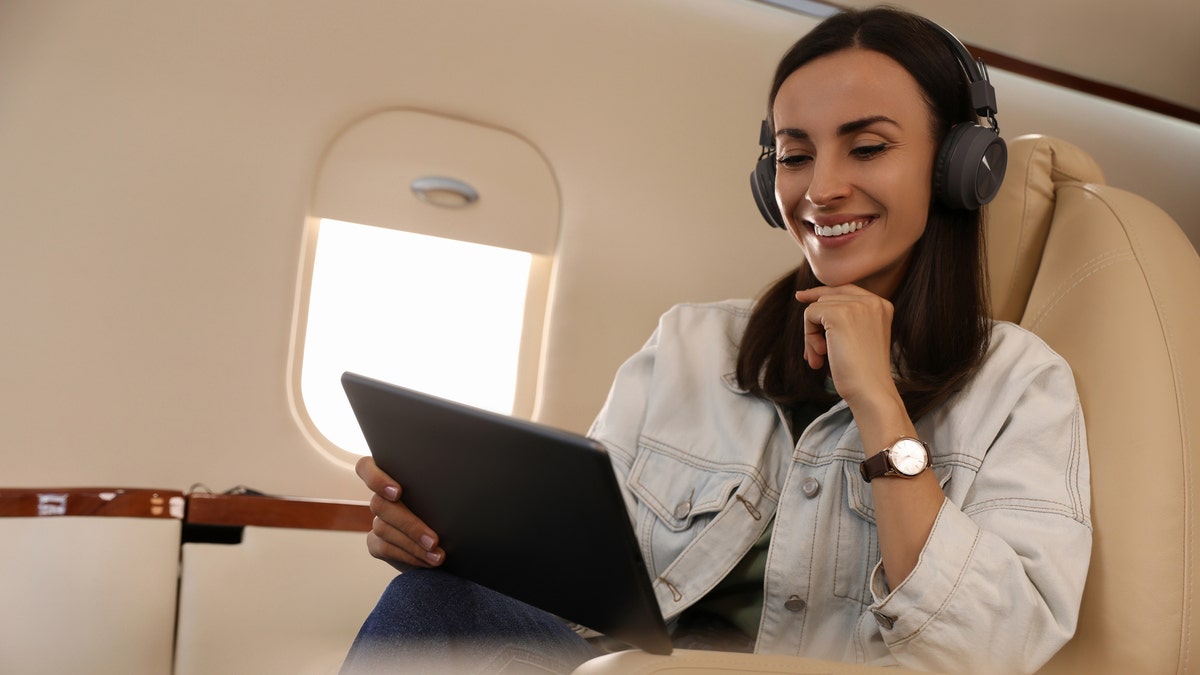
Having movies and TV shows downloaded to your device during a flight can help the time go by faster. (iStock)
If you are traveling with someone else, you could also bring a card game to play together.
4. Focus on different objects
Focusing on your breathing with different meditation techniques is another way to calm the nerves.
There is a specific exercise that Bunn encourages clients to practice in order to lower stress hormones once they build up.
4 TIPS AND TRICKS FOR FLYING WITH CHECKED BAGS: ‘LUGGAGE WILL GET LOST’
"It’s an exercise I call ‘5, 4, 3, 2, 1,’" Bunn said. "You will first find something to focus on, more or less straight ahead, and use that as your focus point."
Count five things you can see, hear and touch, said the captain. Then, count to four things you can see, hear and touch — and so on, down until you get to one.
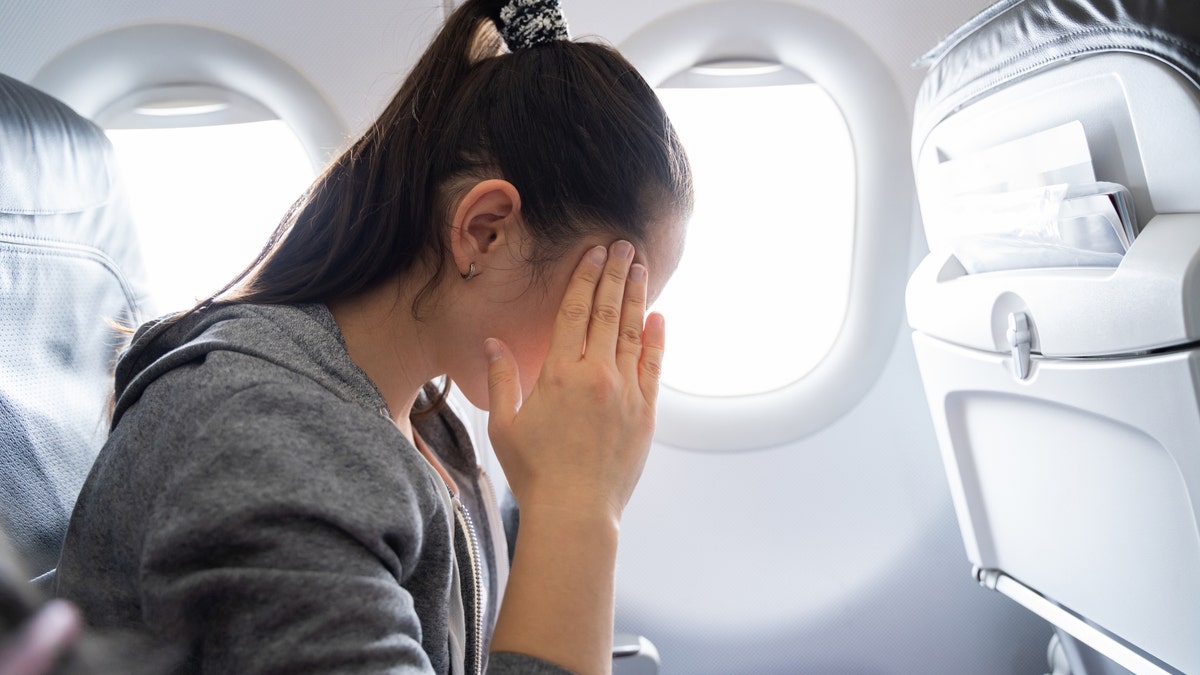
If you feel yourself getting anxious on a flight, breathing techniques can help calm you down. (iStock)
"It takes about two minutes, and by the time you do that — the stress hormones are pretty much gone, maybe totally gone," Bunn said.
"And the particular thing about stress hormones is that when they’re kicking around, it forces you to focus on something that’s problematic. So if you keep focusing on it, you increase stress hormones. But if you can get rid of the stress hormones by using the ‘5, 4, 3, 2, 1’ — then your mind is free to focus where you want to."
5. Learn about the aircraft
Taking time to do research about planes before getting on one can help you be more confident about your flight.
WITH ALL THE RECENT HEADLINES ABOUT PANELS AND TIRES FALLING OFF PLANES, IS FLYING SAFE?
Look into how planes function and the safety features that are in place. This basic understanding of aircraft could make a big difference to you during your travels and help you feel safer when you are in the air.
When it comes to the stats, there is a very small chance of a plane crash happening. The chances of dying in a crash are actually about one in 11 million, according to many sources.
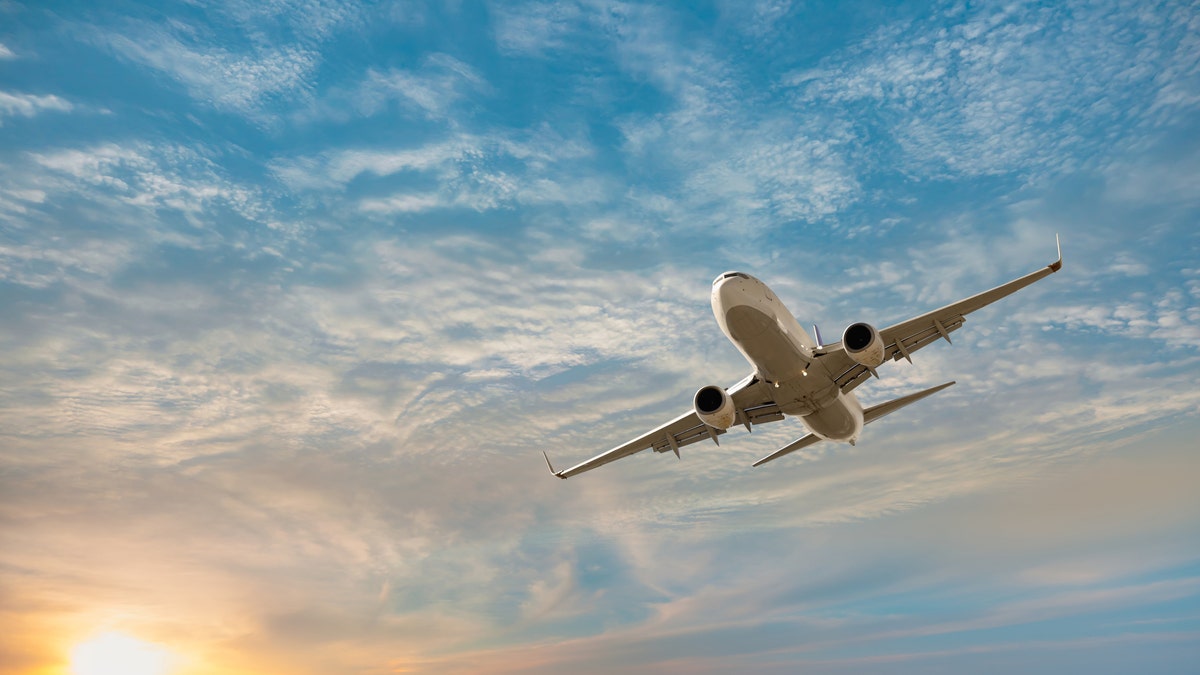
Before going on your flight, gain an understanding of things that could happen, like turbulence and what that means, to help ease your mind while you're in the sky. (iStock)
Another scary factor often involved with flying is turbulence. When turbulence occurs, depending on its severity, it can sometimes make for a scary and bumpy ride.
Understanding what turbulence is can put your mind at ease. Turbulence happens when there is some sort of change in the air movement around the plane. Most of the time, a little turbulence is no big deal and very common during a flight.
CLICK HERE TO SIGN UP FOR OUR LIFESTYLE NEWSLETTER
Finding the answers to questions you have about planes can help you feel a lot better about flying, once you know the statistics and have a general understanding of how things work.
6. Spend the flight asleep
Falling asleep on a plane can be really difficult, especially if you are feeling anxious, but there are different things you can take with you to make it easier to fall asleep.
One thing that makes sleeping on a plane easier is if you have a flight really early in the morning or late at night. At these times, you’ll be more tired, and the plane will be darker, making it easier to fall asleep.
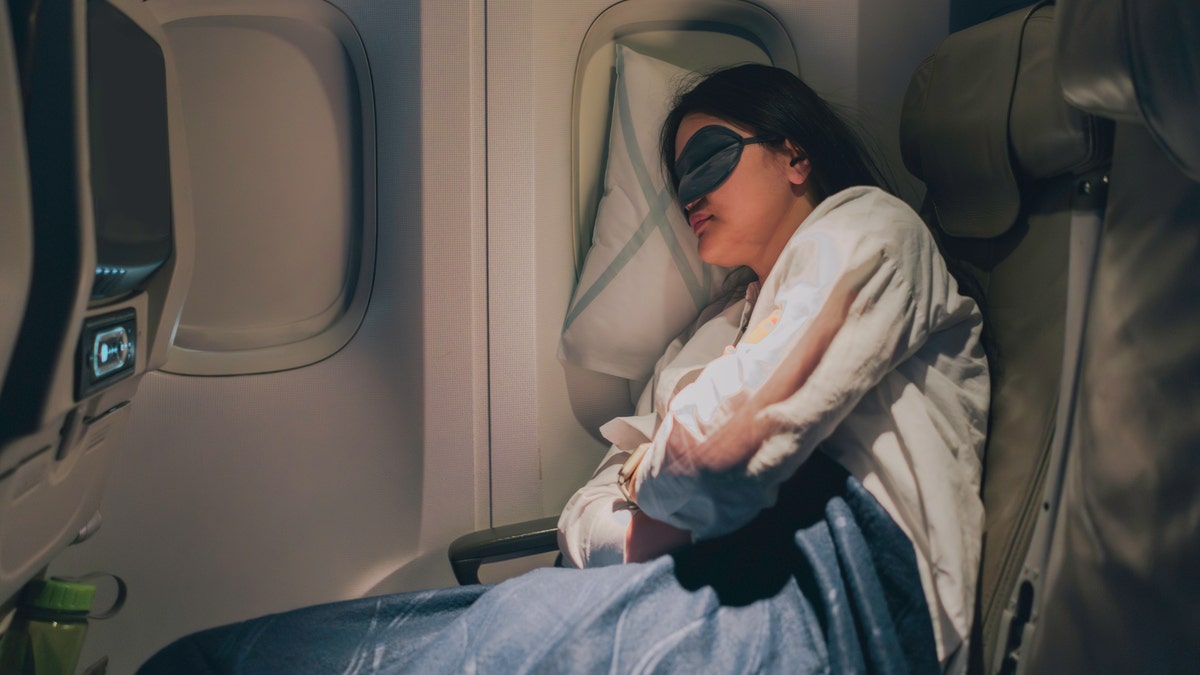
It can be difficult to fall asleep on a flight, but if you can, a snooze can help the time go by faster. (iStock)
Also, bring a travel pillow and a blanket with you for extra comfort. Having an eye mask can also help you fall asleep by blocking out the light.
If you have headphones handy, you can play calming sounds on your phone to help you fall asleep.
7. Be strategic with seat choice
Book your flight early, before the seats start to fill, so you can choose a seat that may help you put your mind at ease.
For more Lifestyle articles, visit www.foxnews.com/lifestyle
If you sit toward the back of the plane, that area is typically going to be louder, and there’s going to be a lot more movement with people passing you to use the bathroom.
On the other hand, if you sit in the front sections, it will generally be a lot more peaceful and more quiet.

Book your flight far in advance so you'll have a large selection of seats to choose from. (iStock)
You may feel more comfortable sitting in the aisle, rather than at the window, where you could feel more restricted.
If you are traveling with others, booking flights early ensures that you'll be able to sit next to each other, which could bring you a lot of comfort.
CLICK HERE TO GET THE FOX NEWS APP
Keep in mind that many airlines require an extra fee to choose your seats, but it may be worth it for you to verify that you'll be sitting next to a loved one.
8. Strike up a conversation
Engaging in conversation during your flight can help ease the nerves.
If you are traveling with others, talk with them, quietly, of course, so as to not disturb other guests.
If you are a solo traveler, you may just find yourself sitting beside a fellow solo traveler you can start a conversation with, if they want to talk with you too, of course.
Who knows? You could even make a new friend on your flight. Plus, talking while in the sky can keep you busy and help time pass.
Kimber Crandall contributed reporting.

